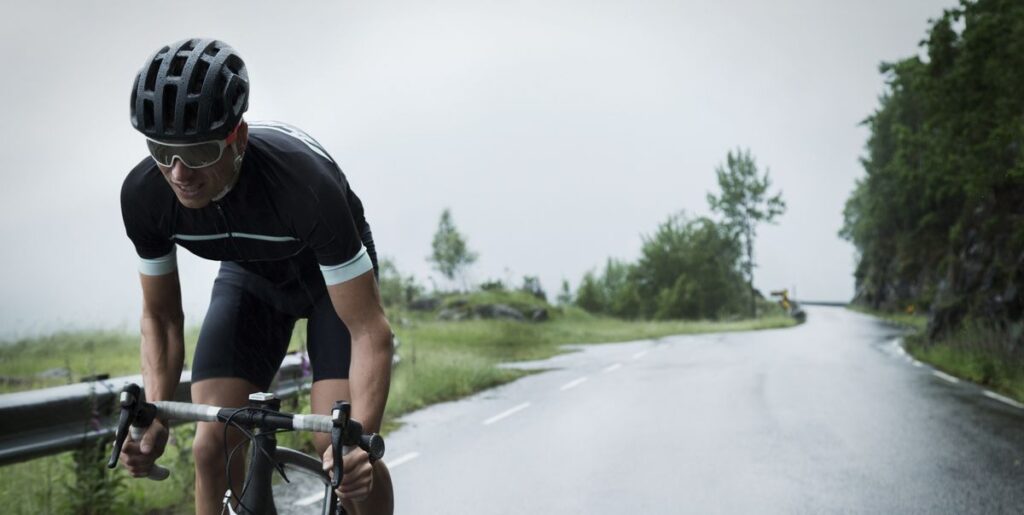
There are quite a few seasoned bike riders who do what they can to avoid riding in the rain, which is hardly surprising, as wet conditions greatly increase the risk of coming off the bike. If you are happy to ride in the rain, there are steps you can take to make riding safer and with that in mind, here they are.
- Check your Tyres – If your tyres are lacking in tread, this is very dangerous on wet roads, which is why you should fit rain tyres that have deep channels to force the water away, giving you better grip on the road. You also need to check that your tyres are inflated to the correct PSI (See user manual). Prior to every journey, you should inspect both tyres, looking for bulges, tears or worn tread and once you get in the habit, it will become second nature.
- Applying Power – While you might be able to turn on the power when coming out of a corner in the dry, doing so in the wet will likely see you take a tumble, as the rear tyre loses traction with the wet asphalt. Ask any seasoned rider and they will happily confirm that being careful with the throttle is critical in wet conditions, especially if you rise a powerful machine. If you are looking to acquire one of the Honda motorcycles in the UK, search with Google to find a leading UK dealer who has a range of new and used bikes, all with affordable finance.
- Avoid Heavy Use of Front Brake – When riding in the wet, you should mainly use the rear brake to slow down and heavy use of the front brake could lock the wheel, which will send you tumbling onto the hard road surface. The recommended front and back brake combination in the wet is, 30-70, with the latter being the rear. It is easier to control a rear wheel skid than a front one; something you should always bear in mind. Here are a few motorcycle insurance myths
- Wet Weather Gear – You should have a lightweight plastic set of tops and bottoms to quickly put on when the rain starts. This will prevent your leathers getting wet, which makes for very uncomfortable riding, and the items can be rolled up and stored under your seat.
- Keep Speed Down – It goes without saying that you should ride at slower speeds than you would in the dry, which reduces the risk of a tumble. Most riders fully understand this and should you have to stop quickly for any reason, slower speeds equal shorter stopping distances. You must be very careful when riding through puddles, as this could cause aquaplaning, which would probably cause you to come off the bike, so always reduce speed when riding through puddles. Click here for official UK government advice about tyre safety.
There is nothing wrong with wet weather riding, as long as you have the right clothing and are extra careful in every respect, which should see safe riding experiences.





More Stories
Why Canadian Lights Smokes Are the Preferred Choice of Most Smokers in Canada?
HRMS in WFH: Role and Remote Attendance Guide
Is Maybelline an Indian Company? Know all about